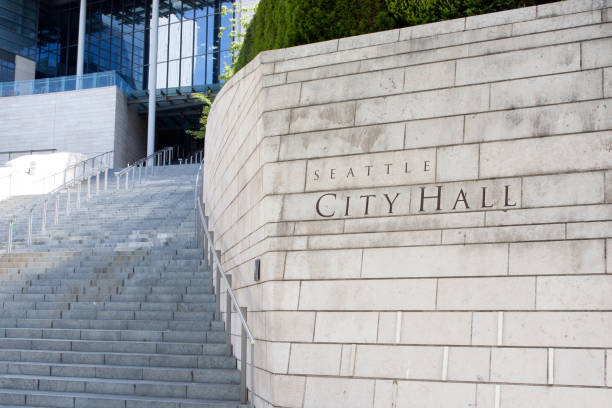We support you, Mr. Mayor – let’s go
Dear Seattle Mayor-Elect Harrell,
Congratulations on your victory. At a time when crafting solutions to our city’s issues illustrates our penchant to disagree on about anything, you were able to convince a majority of voters that you’re our best choice to lead the way in fixing all that ails Seattle.
And while we’re sure that some of the confetti thrown at your celebration party remains unswept, we at United Way of King County would like to take this opportunity to extend a direct—no, make that urgent— call to action.
When your mayoral term begins in January, you need to hit the ground running like Usain Bolt.
You’re aware that between the homeless crisis, the housing crisis, the chronic education issues, the burgeoning income divides and the deep-seated sentiment that little is being done about all of the above, there is plenty of trust to be restored and progress to be accomplished. Improvement will require the vision, determination and leadership you’ve convinced the electorate you possess.
Now, it’s time to deliver. We acknowledge that it is going to take all of us — including government, the private sector and philanthropy — to make this the Seattle we all want to see. United Way is here to lend our support, our expertise, and our efforts to help foster a racially just recovery where all people have homes, students graduate and families are financially stable.
That said, we’ve compiled a “to-do list,” containing four agenda items we believe you should prioritize more than anything else.
First item: Homelessness. King County’s January 2020 homeless count showed nearly 12,000 experiencing homelessness, a figure that has undoubtedly grown since the COVID-19 pandemic. We know that homelessness has been a key topic during your mayoral campaign, as you vowed to do more about the crisis than your predecessor— who four years ago vowed to do more than hers. But unlike former mayors, your term begins as the King County Regional Homelessness Authority is getting grounded in its work. We urge you to put your full support behind KCRHA; it has begun unifying and coordinating once-fragmented programs and departments into a streamlined and centralized system built on equity and social justice principles.
Second item: Housing. We at United Way believe that the best way to end homelessness is to prevent it from happening in the first place. Given the rising housing costs in this area, which is a laborious undertaking, Seattle has not kept up with housing stock that people of all incomes can afford. According to Norada Real Estate Investments, the median home listing price in Seattle in 2021 was $760,000, up 4 percent from 2020. Rentals aren’t much better: Monthly rents in Seattle increased from $1,375 in 2010 to $1,998 in 2020, according to a PropertyClub study. United Way offers programs that connect people to housing and income (Streets to Home), and we provide rental assistance to ensure people don’t fall behind in their payments during the COVID-19 pandemic (Home Base). You must do more at the city level to make housing affordable for all who want to live here.
Third item: Education. On the surface, Seattle School District’s student outcomes appear exemplary. But a closer look reveals another picture. The school system tracks percentages of students who enter kindergarten ready in six areas of development (social-emotional, physical, language, cognitive, literacy and math). District data shows that African American, Latino, Pacific Islander and Indigenous students all post readiness rates of 50 percent or less. Those students often remain behind their peers through high school. The numbers underscore what we at United Way already know: Early learning is the key to student success. Our ParentChild+ program is vital to kids in King County who are behind their peers when they start kindergarten. We hope your administration, too, will place greater emphasis on early education in Seattle.
Fourth item: Income disparity. Seattle’s growing prominence as a tech hub has helped it gain some of the highest per capita incomes in the nation. But according to Prosperity Now, it has also created huge income gaps along racial and ethnic lines. Prosperity Now says that the median white household income in Seattle ($96,333) is three times higher than that of African American and Indigenous residents and nearly twice as high as Latino residents. More than 25 percent of African Americans and Latinos have zero net worth, and more than 60 percent of African Americans and Latinos are cost-burdened renters. In addition to programs previously mentioned, we offer the Community Relief Fund, giving rental assistance and help with food. We need more help for those who have not benefitted from Seattle’s boom.
We know we’re not in for a quick fix from your administration, for these problems are years in the making. But this city needs to see progress we can all get behind. We trust you’re up for the job.


Comments